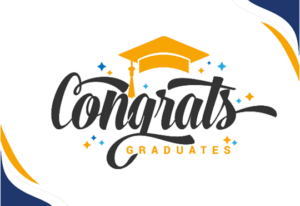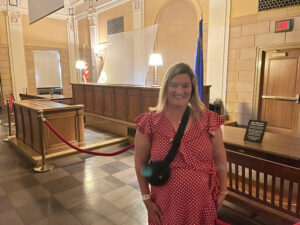Don’t miss tonight’s live webinar, Making Your Videographer Your Partner, at 8 p.m. Eastern. In this session high-tech court reporter Mike Hensley, RDR, asks legal videographers and NCRA members Andrea Kreutz, CLVS, and Justin Donnelly, CLVS, all the questions you’ve ever wanted to ask your videographer but never had the time to. “As with any good partnership,” says Kreutz, “communication is key. Knowing who is responsible will keep you from stepping on each other’s toes and make sure that the deposition keeps running smoothly.”
Register now for Making your videographer your partner | Jan. 12, 8 p.m. Eastern | 0.10 CEU
Want to learn more? Check out this article from the January issue of the JCR. NCRA Technology Committee members Justin Donnelly, CLVS, Mike Hensley, RDR, Andrea Kreutz, CLVS, and Sandra Mierop, FAPR, RPR, CRR, CRC, discuss the importance of reporters and videographers working together.
Court reporters and legal videographers work together
It is sometimes easy to forget about the importance of teamwork — especially in today’s ever-changing technology-driven environment. Remote proceedings due to the pandemic have introduced complexity to the roles of the court reporter and videographer, which has made communication between the two roles of paramount importance. The roles of the court reporter and videographer are intertwined, and there’s significant synergy and teamwork between the court reporter and the videographer from start to finish!
“Communication between the reporter and videographer prior to any proceeding can ensure that the participants have a seamless experience,” says Andrea Kreutz, CLVS, a firm owner based in Des Moines, Iowa, and a member of the NCRA Technology Committee. “The participants might assume you’ve been working together for years when, in actuality, you just met.”
As both legal videographers and court reporters work to advise legal professionals through remote work while getting back to in-person work, the NCRA Technology Committee decided to share some tips and advice on how they can best work together.
Sandra Mierop, FAPR, RPR, CRR, CRC, a firm owner and court reporter working in Anchorage, Alaska, who serves on the NCRA Technology Committee, shared that her favorite videographer, who she works with often, “keeps a running list of odd words and names that come up in each deposition that we work together on so that I can get those spellings before everybody leaves the room. He’s very Type A with his gear, always has the latest and greatest, and tests to make sure everything is continuing to work properly before going back on the record after breaks. He’s always kind to the witnesses as he shares the dos and don’ts about video deps, such as ‘Don’t run off without disconnecting the lapel microphone!’ He reminds the attorneys before each deposition that they should be aware that his microphones will pick up private conversations, so be sure to go off the record if they want to chat with their clients.”
Mutual appreciation for skills is a great way to keep the lines of communication open, and Justin Donnelly, CLVS, a legal videographer in Reston, Va., and another member of the Technology Committee, expressed his own appreciation of court reporters: “I love working with amazing court reporters who are willing to communicate their needs and work together to create an excellent work product. When this happens, the attorney-client not only has a very clear, distinct transcript, but also a high-quality video documenting the entire proceeding. As a freelance videographer for legal depositions, I am there to document the deposition and to also help the court reporter in any technical capacity, working together to achieve the highest quality work product.”
It’s important to remember that the two roles complement each other when done well.
“When working as a freelance deposition reporter, you will often be the only person in the proceeding whose focus is on what goes onto the record for the final transcript. It can be refreshing to have a partner in the proceeding who can support what we’re doing,” says Mike Hensley, RDR, a freelancer based in Dublin, Calif., and member of the Technology Committee. “It is vital to remember that the two of you together are working in concert towards the same goal of capturing testimony for the record in order to preserve information given under oath. Additionally, it is important to remember that both the videographer and the reporter are to conduct themselves in a manner that demonstrates impartiality.
“I can tell you that I thoroughly enjoy working with videographers, especially for their knowledge of technology in ways that I am not aware of personally,” Hensley continues. “If you have the time and opportunity, ask the videographer you’re working with if they have any suggestions or recommendations for items you can use to help in your daily work. When speaking with a videographer, use clear language that conveys what your needs are and what is your desired outcome. It is unclear when something is described as a ‘thingy’ or a ‘doodad.’ However, if you share that you’re looking for something to improve the quality of your audio recordings, then they can share with you their knowledge about patch cords or microphones. Feel free to be creative as well! Just because a device or accessory is labeled for one purpose, or even a particular industry, that doesn’t mean you are prevented from adapting it to your own needs. A videographer I worked with in the past explained to me that he uses a stand that is listed as an accessory for DJs. It absolutely works for videographers, and it can even work for you as a court reporter. With some creativity, along with collaborative communication, you will be amazed at what you will discover that can help both the reporter and the videographer in their common goal of capturing and preserving the record in the best way possible.”
Kreutz reminds us: “As with any good partnership, communication is key. Knowing who is responsible will keep you from stepping on each other’s toes and make sure that the deposition keeps running smoothly.”
This article was created by the NCRA Technology Committee. Thanks to all the members of that committee and especially the following members who contributed to this article:
Justin Donnelly, CLVS, is a legal videographer in Reston, Va. He can be reached at justin@jdonnellypro.com.
Mike Hensley, RDR, is a freelance court reporter based in Dublin, Calif. He can be reached at mike@mphsteno.com.
Andrea Kreutz, CLVS, is a legal videographer and agency owner based in Des Moines, Iowa. She can be reached at andreak@huneyvaughn.com.
Sandra Mierop, FAPR, RPR, CRR, CRC, is a freelancer and agency owner based in Anchorage, Alaska. She can be reached at sandi@nlrr.com.
The full text of this article is available to NCRA members here.










